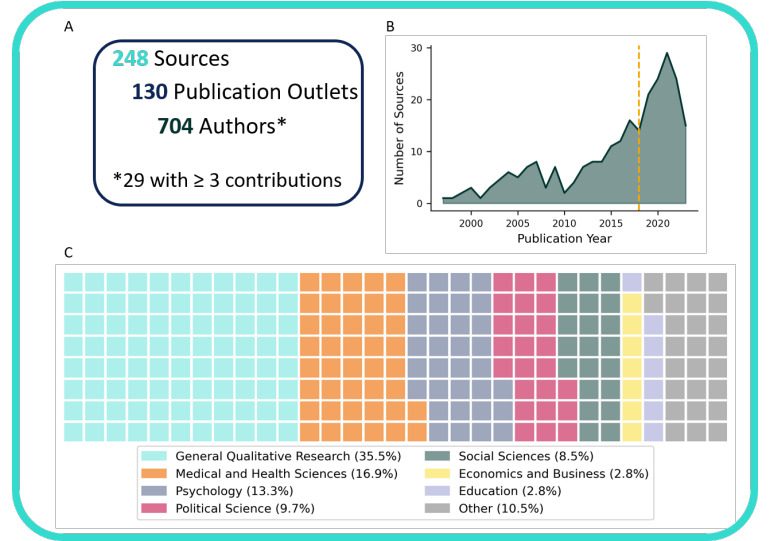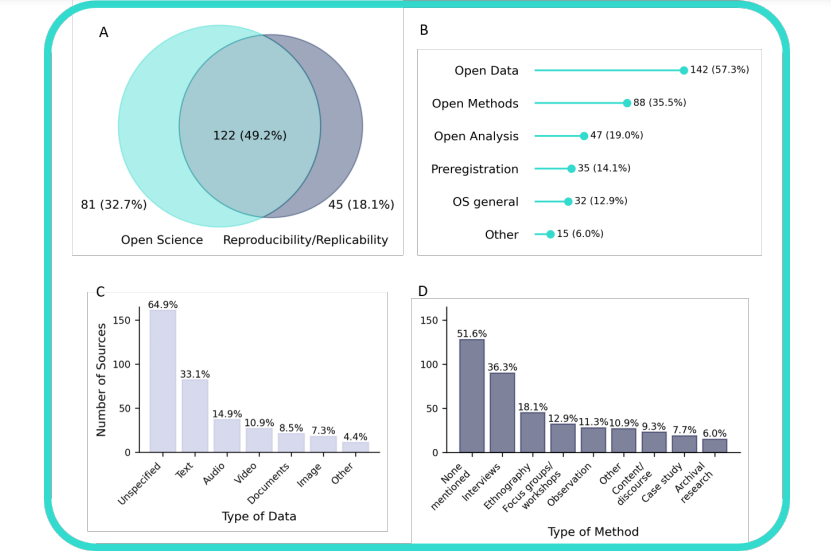A new preprint on the reproducibility and replicability of qualitative research
A new preprint from TIER2 partners examines the reproducibility and replicability of qualitative research, focusing on how these concepts are understood and their relevance to qualitative methodologies.

Sample description of included sources.
(A) Overview. (B) Number by publication year with median line indicated.
(C) Sources as classified by their disciplinary orientation.
For the integrative review, 248 papers from both peer-reviewed and grey literature were analysed and data was collected through the SyRF online platform. The review concludes that traditional, quantitative definitions of reproducibility and replicability often conflict with the epistemological and ontological foundations of qualitative research. However, when these concepts are adapted to the specific goals and methods of qualitative research, they can still be relevant.

Characteristics coded for the sample of included sources. (A) Sources identified as addressing OS, Reproducibility/Replicability, or both. (B) Number addressing specific OS practices (multiple practices per source possible). (C) Number addressing specific types of data (multiple types per source possible). (D) Number addressing specific types of methods (multiple methods per source possible).
The results show that the key barriers to reproducibility, replication, and Open Science include ontological and epistemological misalignment, particularly the context-dependent nature of qualitative studies and the central role of researcher subjectivity. Ethical concerns surrounding data sharing and reuse also pose significant challenges, while enablers such as anonymisation, ethical consent practices, context documentation, and ethical access management can help address these issues. Additionally, established qualitative practices, including reflexivity and considering positionality, are highlighted as important for enabling open research.
The review suggests that reproducibility and replicability should be redefined to align with the distinct epistemic conditions of qualitative research, noting that they may not always be appropriate or feasible for every study. Despite the challenges, practices like documentation and reflexivity can use a more inclusive Open Science framework, broadening its applicability to diverse research methodologies.
